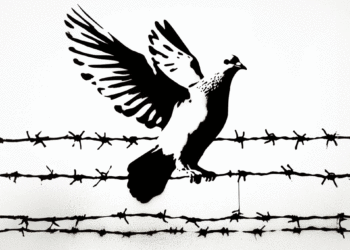The heinous murder of Mohammed Abu Khdeir was denounced by Israeli rabbis as antithetical to Judaism, but their words came too late
By RABBI ALEXANDER DAVIS
A prayer in our siddur has long made me uncomfortable. Traditionally recited on Shabbat during the Torah service, “Av Harachamim” is a prayer for God to remember and avenge the death of Jewish martyrs. It was composed in medieval Europe in response to the destruction of Jewish communities by the Crusaders.
At Beth El, we do not regularly recite this prayer except for a modified version on Shabbat Chazon, the Shabbat before 9 Av, which commemorates the destruction of the Temples and of numerous Jewish communities over the ages.
No one can question the value of remembering our history of honoring our dead. But the language of this prayer is challenging. It begins by speaking of God as a “God of Compassion” who should remember those who were killed. But it continues quoting verses from the Tanach (Bible) that describe God as “Doreish Damim” — One who desires blood in retribution: “God will avenge the blood of God’s servants, wreak vengeance on His foes, and make clean His people’s land.”
We say that we are to walk in God’s ways. Just as God feeds the hungry, so must we. Just as God clothes the naked, so must we clothe the naked, etc. Perhaps then we might say, “Just as God seeks revenge, so must we?” And indeed, we have seen Jews — primarily from radical Orthodox communities — do just that. Not only do they defy Israeli law, they justify their actions according to Jewish law.
“Price Tag” attacks have been going on for years. Jews have been vandalizing mosques and churches, spitting on priests and beating up Arabs. (Editor’s note: See “An epidemic of hate crimes in Israel,” by Ron Kronish, 5-9-14 AJW.) Unsurprisingly then, the tragic deaths of Gilad, Eyal and Naftali were met with mobs of Jews chanting, “Death to Arabs,” and Facebook groups calling for revenge.
The killing of Mohammed Abu Khdeir by Jewish nationalists is this unchecked venom taken to its logical and extreme conclusion.

There are many qualifications we might make when speaking about this stain on our people: Jewish racism exists among a small minority of Jews; when it appears, it is quickly and widely condemned by leaders; it is not condoned or institutionalized by government authorities; a system of law exists to punish perpetrators; attacks are few in comparison and less severe in comparison to what Israelis face daily, etc. All are true.
But none of these qualifications justify making excuses for Price Tag actions or minimizing their significance. Indeed, Rabbi Daniel Landes, the popular Pardes Institute of Jewish Studies director, called for the homes of Jewish terrorists to be bulldozed, just as Israel does for Palestinian terrorists.
The chilul hashem (desecration of God’s name) we witnessed earlier this month was denounced by Israeli rabbis as antithetical to Judaism. But their words came too late. Too often racist statements from the highest levels of the Orthodox rabbanut (Israel’s official rabbinical authority) have gone unchecked. The IDF bravely guards the lives of our Israeli brethren. No less important is the guarding the Jewish soul. We need rabbis, teachers and scholars whose critical thought, enlightened theology and upright actions reflects the best of Jewish values.
And we need God. We need a God who will mete out justice, who will uproot and crush our enemies. But, as 19th century Shimshon Raphael Hirsch, an Orthodox Jews, writes about “Av Harachamim,” when it comes to revenge, “we do not pray that we are strong enough to avenge our martyrs; Jews are not motivated by a lust to repay violence and murder with violence and murder. Rather we pray that God choose how and when to atone for the blood of His fallen martyrs. For the living, decency and integrity remain the primary goals of social life.”
We cannot deny our heart’s desire to lash out in the face of brutal attacks against our people. But our mind knows better. And with thoughtful leadership, responsible parents, ethical rabbis, we can learn to control our rage, while acting with force when necessary to pursue justice and peace.
Even as we continue to support Israel and pray for peace, we take the words of the 15th century Jewish ethical treatise, Orchot Tzadikim: Pathways of the Righteous (author unknown), to heart for our own lives:
Guard yourself against the desire for vengeance. If you truly wish to avenge yourself on your enemy, then add to your good qualities and walk in the path of the upright. In this way you will be avenged on him who hates you. For he will writhe in pain because of your good qualities and good repute and mourn when he hears good of you. But if you do ugly deeds then your enemy will rejoice over your shame and disgrace and thus avenge himself against you.
Orchot Tzadikim is not suggesting that we “turn the other cheek” or that we love our enemy. We must protect ourselves against those who seek our harm, against those who never cease from trying to push Israel into the sea. But the response must be done within the context of law and within the bounds of “what is good and right in God’s eyes” (Deut. 6:18).
May God’s attribute of mercy overcome God’s capacity for vengeance. And may we learn to do the same.
***
Alexander Davis is the senior rabbi of Beth El Synagogue in St. Louis Park.
(American Jewish World, 7.18.14)




















